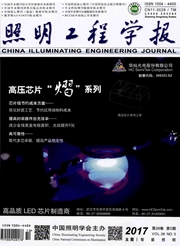

 中文摘要:
中文摘要:
为了有效预测室内自然光照度,本文利用自适应神经模糊推理系统,建立了基于分块百叶帘的室内自然光照度预测模型。首先通过EnergyPlusTM软件模拟办公空间模型并获得一年中测量点传感器中的照度数据,然后利用这些数据对自适应神经模糊推理系统模型进行训练,实现了不同百叶帘角度下室内自然光照度的预测。检验结果表明:模型预测照度的平均误差为5.2%,一年中大约90%的时间测量点照度百分比误差都小于10%。因此,该模型为分块百叶帘室内自然光照度提供了一种有效的预测方法,对于研究智能照明有着重要的意义。
 英文摘要:
英文摘要:
To effectively predict the daylight illuminance in buildings,this research developed a daylight illuminance prediction based on spilt blinds model by applying the adaptive neural fuzzy inference system.First,software EnergyPlus was used to simulate the workplane illuminance at two sensor points in an office space.Then,a series of adaptive neural fuzzy inference systems were trained by the workplane illuminance.The validation results showed that the average illuminance percentage error of the prediction model to predict illuminance was 5.2%.For about 90% of time in the year,the illuminance percentage errors were less than 10%.Therefore,this research offers an effective approach to predict the daylight illuminance of split blinds and it is significant to study intelligent lighting.
 同期刊论文项目
同期刊论文项目
 同项目期刊论文
同项目期刊论文
 期刊信息
期刊信息
